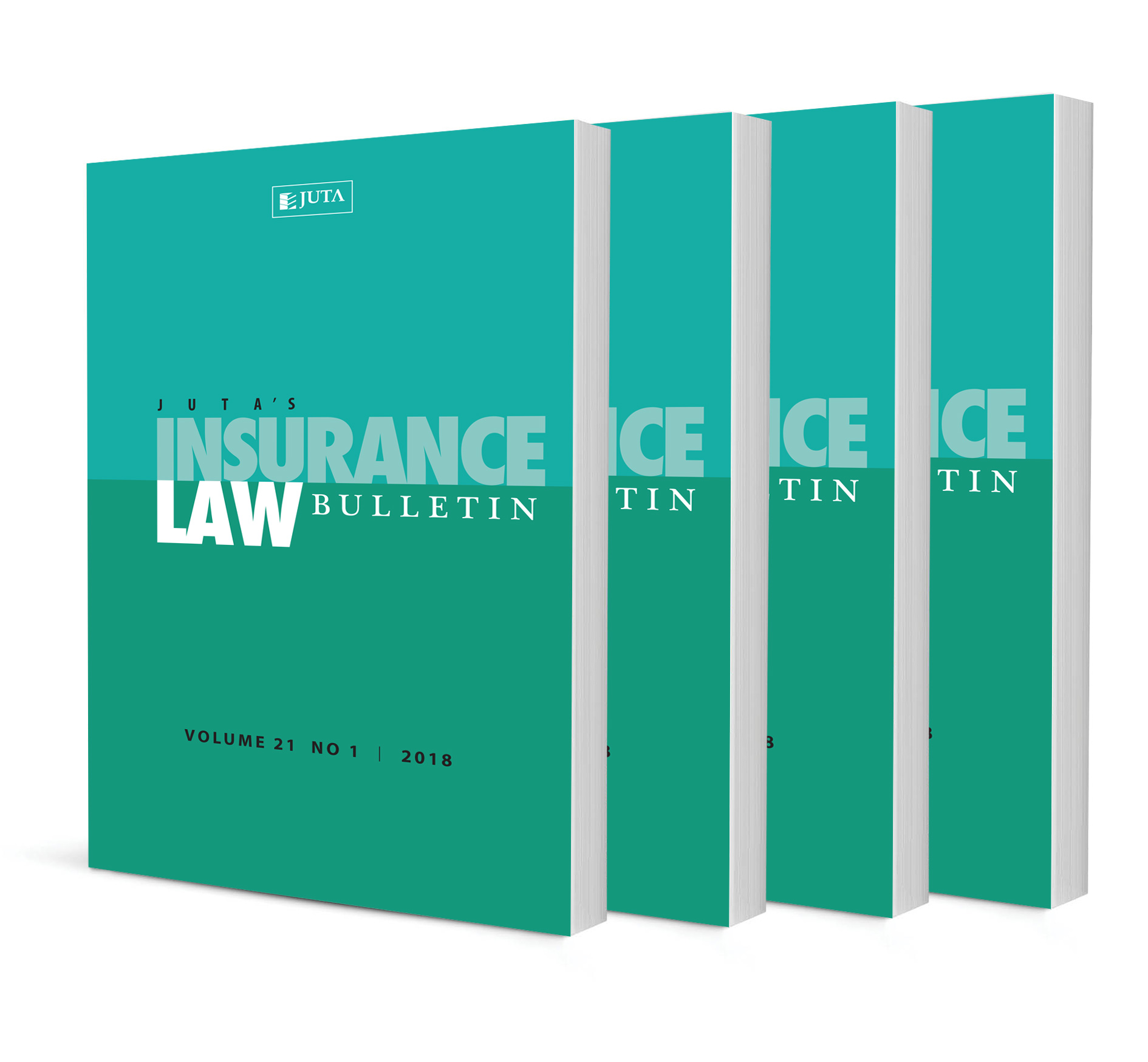Cases: Chard v Old Mutual Insure Limited Case number A66/2017; [2019] ZAKZDHC 23 (30 September 2019)

Cases: Chard v Old Mutual Insure Limited
Case number A66/2017; [2019] ZAKZDHC 23
(30 September 2019)
Author Daleen Millard
ISSN: 2517-9543
Affiliations: Department of Private Law, Law Faculty, University of Johannesburg
Source: Juta’s Insurance Law Bulletin, Volume 22 Issue 4, 2019, p. 101 – 110
Abstract
None